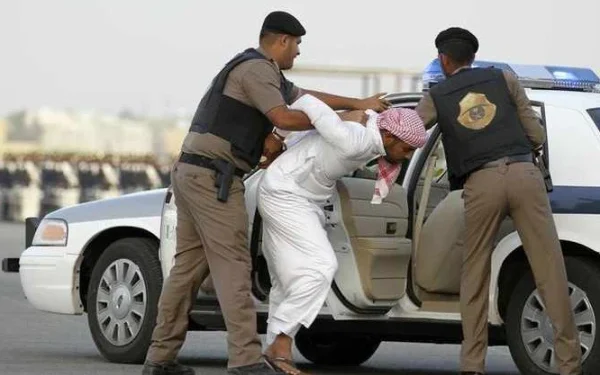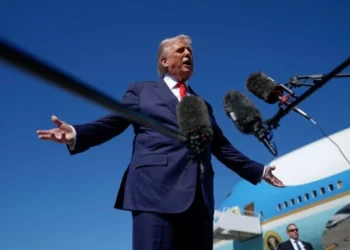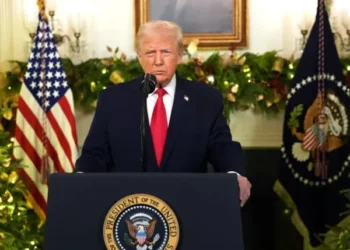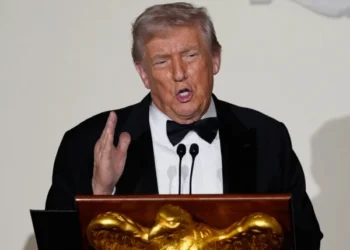Introduction: A Renewed Crackdown on Moral Violations
Saudi Arabia has intensified its crackdown on “immoral activities” as part of an extensive social and economic reform initiative led by Crown Prince Mohammed bin Salman. The government has taken strict action against activities deemed inappropriate under its laws, reinforcing its commitment to maintaining traditional values while implementing modernization efforts.
The Saudi Interior Ministry recently launched a large-scale operation targeting individuals allegedly involved in prostitution, human trafficking, and illegal businesses such as unregistered massage parlors. As a result, more than 50 individuals, including 11 women, have been arrested, along with dozens of foreign nationals accused of various offenses.
Key Arrests and Charges
Authorities have reported that those arrested were engaged in activities that contradict the country’s strict moral codes. Some of the major offenses cited include:
- Prostitution: Saudi officials have, for the first time in a decade, acknowledged the presence of prostitution within the country. Eleven women were taken into custody on related charges.
- Illegal Massage Parlors: Law enforcement detained foreign nationals running unlicensed massage parlors suspected of serving as fronts for illicit activities.
- Human Trafficking and Forced Begging: Reports indicate that several individuals were arrested for forcing women and children to beg in public places, a practice that authorities have been actively working to eliminate.
This crackdown follows an earlier operation in which four foreign nationals were detained in Riyadh for engaging in “immoral activities” at a massage parlor. Additionally, a separate raid on a hotel resulted in the arrest of three foreign women accused of prostitution.
Historical Context: Saudi Arabia’s Shifting Policies on Morality
For decades, Saudi Arabia enforced a strict interpretation of Islamic law through the Mutawa, also known as the Committee for the Promotion of Virtue and the Prevention of Vice. This religious police force was responsible for monitoring public morality, ensuring that individuals adhered to strict dress codes, gender segregation, and prohibitions on behaviors deemed inappropriate by Islamic law.
However, in 2016, Crown Prince Mohammed bin Salman significantly curtailed the powers of the Mutawa as part of his broader Vision 2030 initiative. The reforms aimed to modernize Saudi society, ease restrictions on entertainment and women’s rights, and promote a more moderate interpretation of Islam. Since then, Saudi Arabia has hosted international concerts, lifted the driving ban on women, and introduced new entertainment options previously considered taboo.
Despite these progressive changes, the government has maintained a zero-tolerance policy toward moral and ethical violations that could disrupt social order. This latest crackdown signals that while some reforms have been introduced, the kingdom remains firm in upholding its conservative values.
Possible Reasons Behind the Crackdown
Analysts suggest several factors may have prompted the sudden intensification of this moral crackdown:
1. Rise in Social Media Promotion of ‘Immoral Activities’
With the expansion of digital platforms, social media has played a role in promoting activities that contradict the country’s moral codes. Authorities are reportedly monitoring online spaces to identify individuals involved in illegal activities and have taken steps to regulate social media content that violates Islamic principles.
2. Increase in Public Violations of Moral Codes
Public behavior in Saudi Arabia has changed significantly in recent years due to social reforms. While entertainment venues and public gatherings are now more common, some incidents of misconduct have raised concerns among conservative segments of society. Authorities aim to strike a balance between modernizing the kingdom and ensuring public morality is maintained.
3. Saudi Arabia’s Global Image Ahead of Major Events
Saudi Arabia is set to host the 2034 FIFA World Cup, an event that will place the country in the global spotlight. The government is keen to demonstrate its commitment to maintaining public order while also positioning itself as an attractive destination for foreign investors and tourists. By cracking down on illegal activities, authorities are likely aiming to project an image of a disciplined and law-abiding society.
Public and Expert Reactions
Opinions on the crackdown have been mixed, with some praising the government’s efforts to uphold morality, while others see it as a return to strict enforcement of conservative laws.
Khalid al-Sulaiman, a columnist for the Saudi newspaper Okaz, voiced support for the crackdown, stating:
“Saudi Arabia is the center of Islam, and no one can be allowed to openly engage in immoral activities here.”
On the other hand, international human rights organizations have expressed concerns about the treatment of individuals accused of these crimes. Critics argue that the government should focus on rehabilitating those involved rather than imposing strict punitive measures.
The Balancing Act: Social Moderation vs. Traditional Values
Saudi Arabia’s government faces a unique challenge: modernizing the nation while preserving its deeply rooted traditions. The kingdom has taken unprecedented steps to reform its economy, attract foreign investment, and boost its tourism sector. However, these efforts require a careful balancing act between appealing to a global audience and maintaining religious and cultural norms.
As Saudi Arabia continues its journey toward Vision 2030, it will need to navigate complex social dynamics to ensure that its reforms align with both domestic expectations and international standards. The recent crackdown underscores the government’s message that while change is welcome, it will not come at the cost of compromising the nation’s core values.
Conclusion: A Clear Message from Authorities
The Saudi government’s latest crackdown on immoral activities sends a strong message that while modernization is underway, there are clear boundaries that will not be crossed. The arrests highlight the country’s commitment to maintaining public morality, particularly as it prepares for global events such as the 2034 FIFA World Cup.
Going forward, it remains to be seen how Saudi Arabia will continue to balance its ambitious reform agenda with the expectations of its conservative society. What is clear, however, is that the kingdom will not tolerate activities that it deems a threat to its religious and social values.
The ongoing reforms and crackdowns demonstrate that Saudi Arabia is undergoing significant transformation, but tradition and morality will remain integral parts of its evolving identity.

























